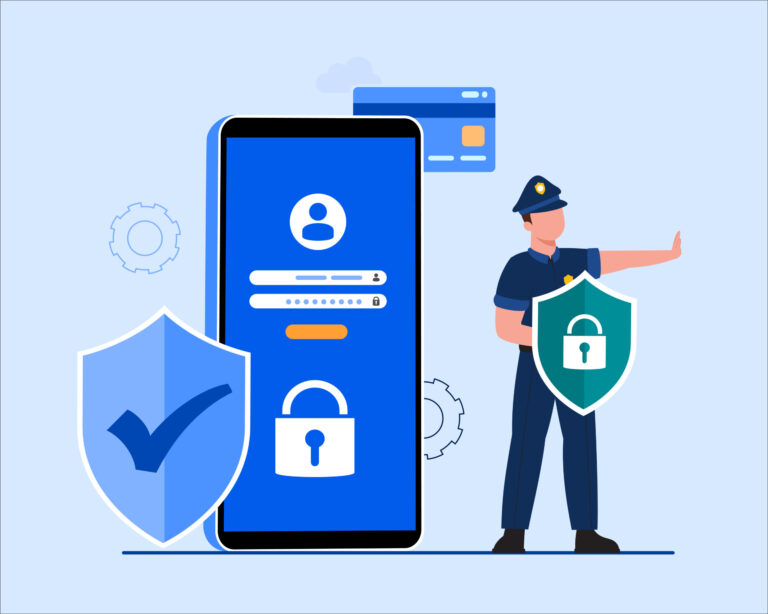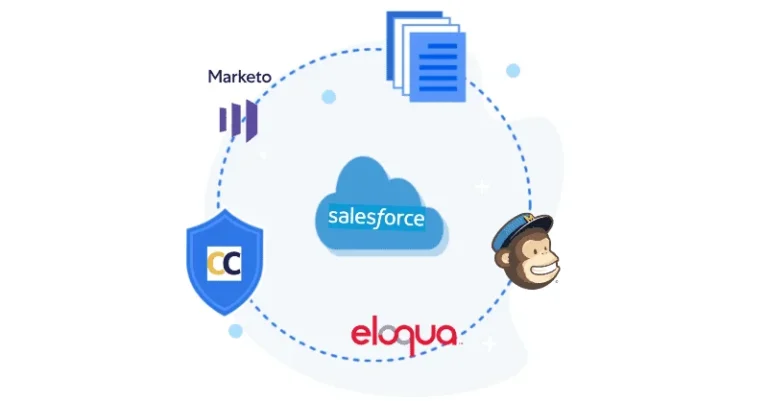
5 Key Strategies for RTBF and Data Portability Automation in Salesforce
5 key steps to simplify and automate your Salesforce org’s RTBF and data portability requests.
This is the second in our series of articles on GDPR. Check our previous article here on GDPR Data Inventory, Data Processing and Right To Be Forgotten..
“Our Information Security is designed to prevent customer data downloads, now they want me to automate downloading it!” the IT architect said with bewilderment.
50 years ago, doctors and dentists were recommending smoking. Of course, we now know that it was bad advice, and society has had an about-face.
In this post, let us take a look at some GDPR principles that may be perceived as an ‘about face’ to the tenets of the traditional Information Security and Policies.
Again, roll with us here. The way we have structured these articles, “David” stands for the little but very powerful things that can go a long way. “Goliath” is for the seemingly more difficult, messier, and larger issues. And… surprise surprise… David and Goliath play on the same team.
Together, they vanquish that big bad enemy of non-compliance with GDPR! Oh, and if it wasn’t already evident, we truly believe that the enemy is non-compliance with GDPR. We believe that GDPR itself is a great friend for the responsible corporations of this world.
Data Minimization
As it says on the tin, just use only as much data as needed to accomplish a specific task. Also, no double dipping – data collected for a given purpose cannot be re-used for another purpose without additional consent.
The idea is to have reasonability of purpose and not treat personal data as a ‘free for all’ commodity.
David: Business process changes around gathering additional personal data attributes such as lead lists. For example, if you have marketing emails going to leads, consider removing all other elements that have no clearly defined purpose.
Also, do away with any unnecessary data enrichment. These changes may sound harder than they actually are.
Here is a thought-provoking article that applies to enterprises and start-ups alike.
Storage Limitation and Data Retention
Continuing with the theme of reasonability of purpose, retention is another important principle. Store personal data only for a legitimate duration and destroy it once its purpose is attained.
Keeping data because you can and wearing Bell Bottoms are both out of fashion and dangerous. Trust me, those flares can get stuck in escalators leaving you exposed!
Personal data without purpose and consent is a corporate liability, an accident waiting to happen, a ticking time bomb, if you will.
David: Automation of data expiration, deletion, or de-identification/obfuscation is one of the simplest steps for most modern systems.
Run a batch job, a scheduler, or whatever your systems support and just get it done. For example, automate the removal of ex-customers data once the contractual and legal obligations are done.
For Salesforce, you can use Compliance Cloud to de-identify records directly, or via automation such as Process Builder/Scheduled Jobs (coming soon in our next release).
Clearly as the name says,…Gimme my data! And in a format that is usable with other providers. Few other GDPR principles are as controversial for businesses as this because, at a glance, it makes customer churn easier. However, data portability is a big win for consumers and a boon for customer-centric companies.
Fixing the root cause that prompts customers to ask for their data can make portability an on-ramp, instead of an easier churn.

Some of GDPR’s well-intentioned principles run counter to the way systems have been designed. Plan to expect technical and business challenges in meeting these requirements.
However, your organization can drive GDPR implementation to its advantage and offer a superior customer experience by embracing a transparent communication strategy.
PlumCloud Labs (Now Cloud Compliance) is engaged in the GDPR space. Contact us(info@cloudcompliance.app) if you have any questions or are interested in discussing this some more.
Also, GDPR is an incredibly large topic, and we have barely scratched the surface here. More to follow in the next set of articles in this series.
Meanwhile, please share your thoughts on what we’ve covered here and other GDPR-related topics you would like to hear more about.

Saurabh is an Enterprise Architect and seasoned entrepreneur spearheading a Salesforce security and AI startup with inventive contributions recognized by a patent.

5 key steps to simplify and automate your Salesforce org’s RTBF and data portability requests.

A plain English guide to the latest additions in the California Privacy Rights Act (CPRA) and their implications for Salesforce orgs.

Get a clear understanding of the GDPR’s impact on Salesforce and explores the benefits of automating RTBF and Data Portability.

65% of the world’s population will be protected by privacy laws by the year 2023 (Source: Gartner).California Privacy Rights Act (CPRA) will only protect Californians. So,

“I don’t even know where to start…We have 5 Million customer records.” said the exasperated to-be DPO. As an American company that primarily does business

Why should you read this? Data Privacy laws such as GDPR and CCPA bring in a new set of requirements around Consent for the

Salesforce and Cloud Compliance, a four-minute read about what Salesforce does and how Cloud Compliance works with it. Let’s start by knowing about our needs
This website uses cookies so that we can provide you with the best user experience possible. Cookie information is stored in your browser and performs functions such as recognising you when you return to our website and helping our team to understand which sections of the website you find most interesting and useful.
Strictly Necessary Cookie should be enabled at all times so that we can save your preferences for cookie settings.
If you disable this cookie, we will not be able to save your preferences. This means that every time you visit this website you will need to enable or disable cookies again.
This website uses Google Analytics to collect anonymous information such as the number of visitors to the site, and the most popular pages.
Keeping this cookie enabled helps us to improve our website.
Please enable Strictly Necessary Cookies first so that we can save your preferences!
This website uses the following additional cookies:
Please enable Strictly Necessary Cookies first so that we can save your preferences!
More information about our Cookie Policy